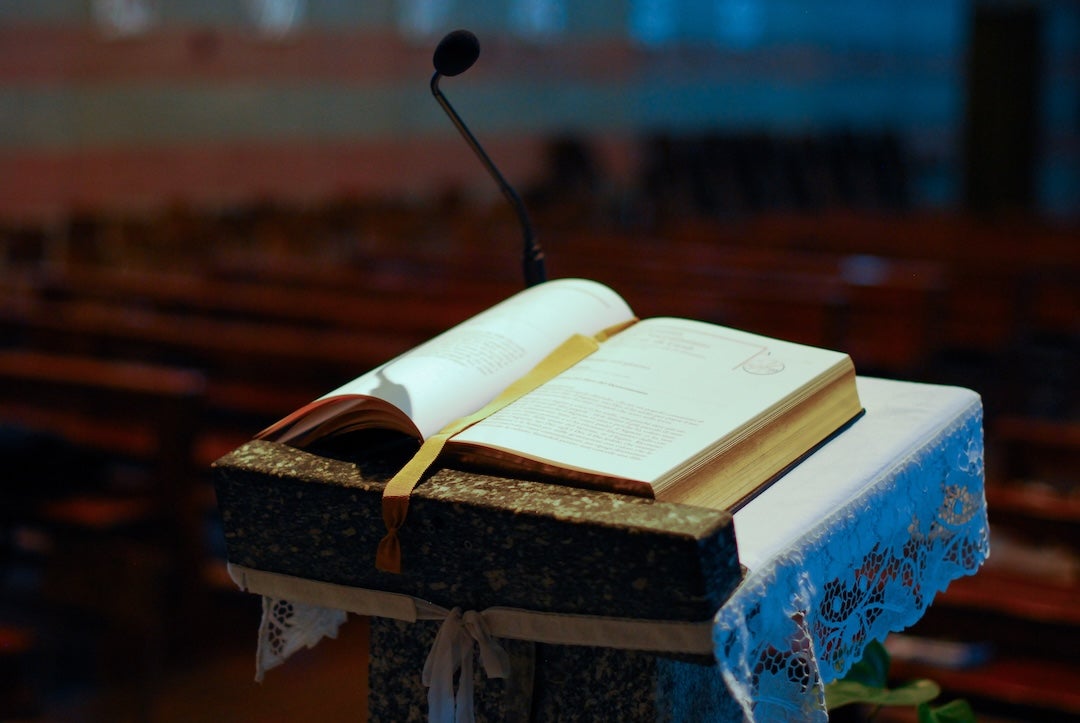Following the murder of George Floyd, evangelical Christians were more likely to avoid the issue of racial injustice, while mainline Protestants and Black clergy addressed the topic in their congregations and in some cases took a stand against it.
The study “How Christian Leaders Navigate Race After George Floyd’s Murder: A Study of Unsettled Times” by Rice University researchers is published online in the Journal for the Scientific Study of Religion. The work examines how Christian clergy in Houston responded to the 2020 murder of Floyd and subsequent calls for racial justice.
The researchers surveyed 118 faith leaders from evangelical Christian, mainline Protestant and Black congregations throughout the Houston area and conducted in-depth, qualitative interviews with 25 of these individuals to gauge their views on racial injustice.
Over the course of the study, they found three main responses among clergy:
-
Clergy feeling called to openly take a stand against racial injustice;
-
Clergy cautiously addressing the issue but experiencing tension and conflicting viewpoints within their congregations;
-
Clergy outright avoiding the issue or claiming that racial injustice is primarily a political issue that should only be addressed in religious settings when it relates to Biblical teachings.
Black clergy were the most likely to take a strong stance against racial injustice from the pulpit, according to the study.
The researchers also said that racial justice efforts led by non-Black clergy were mostly symbolic. Only one leader of a majority-white church was involved in trying to advance racial justice in their local community.
“While clergy of non-Black churches felt convicted by Floyd’s murder to engage in conversations about race in their churches, they also shared with us conflicts and tensions in their congregation that made it difficult to address,” said study co-author Rachel Schneider, director of the Religion and Public Life Program at Rice’s Boniuk Institute for the Study and Advancement of Religious Tolerance. “At the same time, many saw racial justice as a moral issue that Christians should care about as part of love for their neighbors.”
Lead author Brenton Kalinowski, a graduate student in sociology at Rice, said that evangelical leaders who avoided discussing racism or simply framed it as a religious issue minimized the need for systemic policy changes to combat racism.
“Describing racial justice as a Biblical issue rather than a political issue allows leaders to appear more politically neutral, but it may also reduce focus on concrete solutions to racial inequities in society,” Kalinowski said. “Despite this, the murder of Floyd was such an impactful societal moment that other leaders we spoke with felt they needed to talk about structural racism with their congregations even when they would not have done so previously.”
The study authors said that more research in additional locations should be done to give a more representative picture of how congregations respond to calls for racial justice.
“Our results show just how hard it is for certain types of congregations to talk about race,” said Elaine Howard Ecklund, the Herbert S. Autrey Chair and Professor of Sociology, director of the Boniuk Institute and a co-author of the study.
Funding for this research was provided by the Building Research on Inequality and Diversity to Grow Equity initiative at Rice (Ecklund, PI). It is online at https://onlinelibrary-wiley-com.ezproxy.rice.edu/doi/10.1111/jssr.12921.

